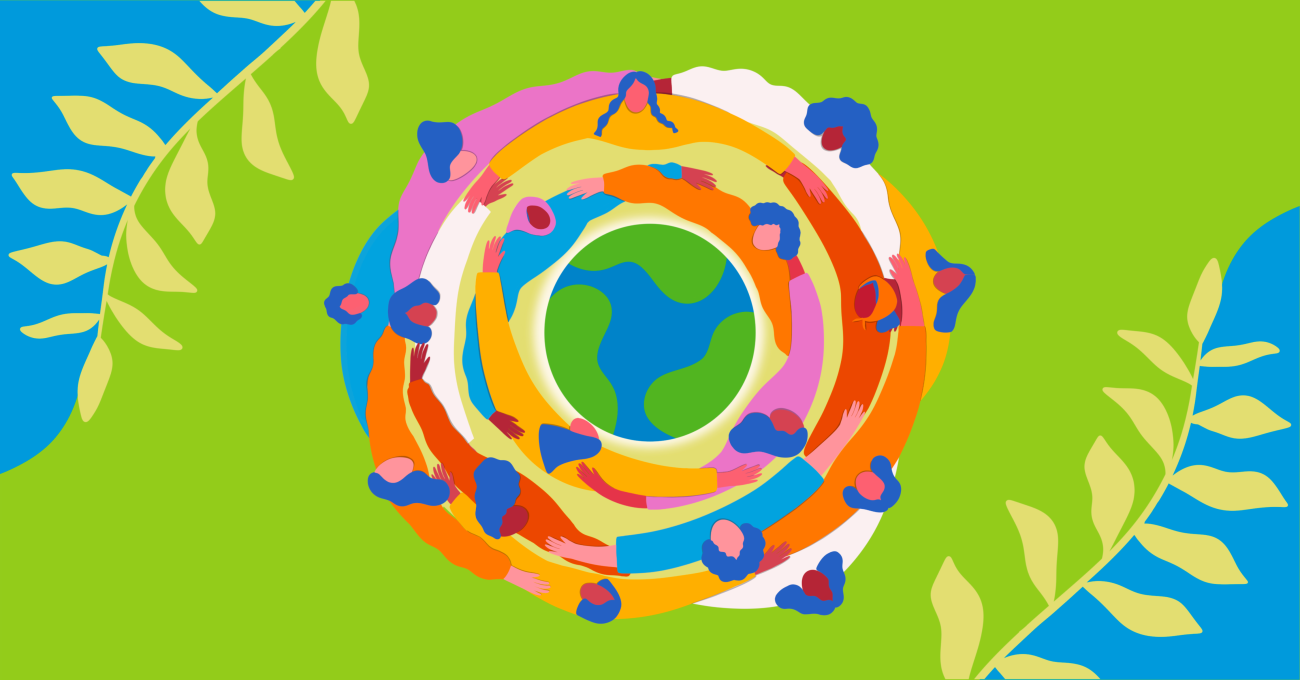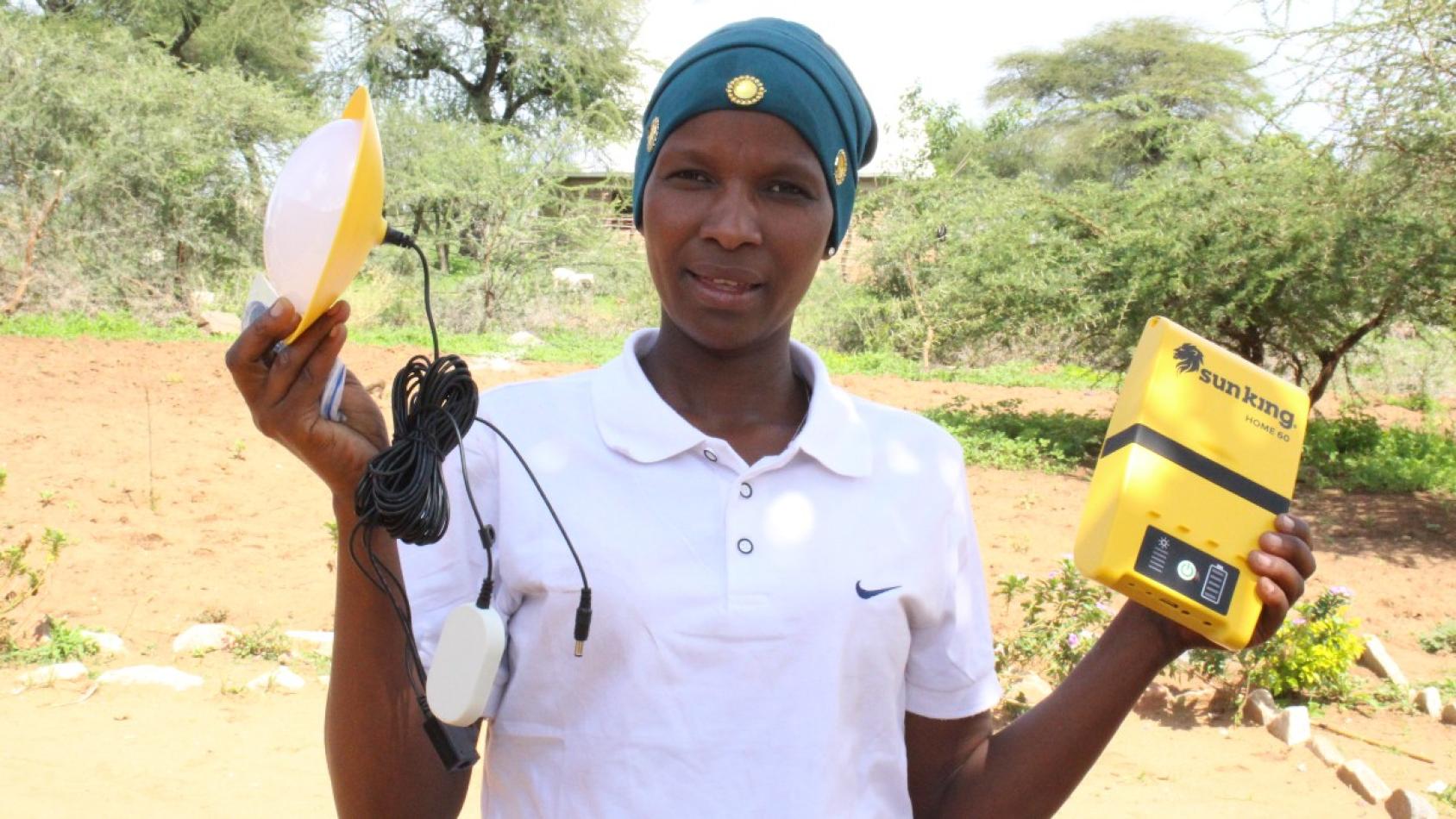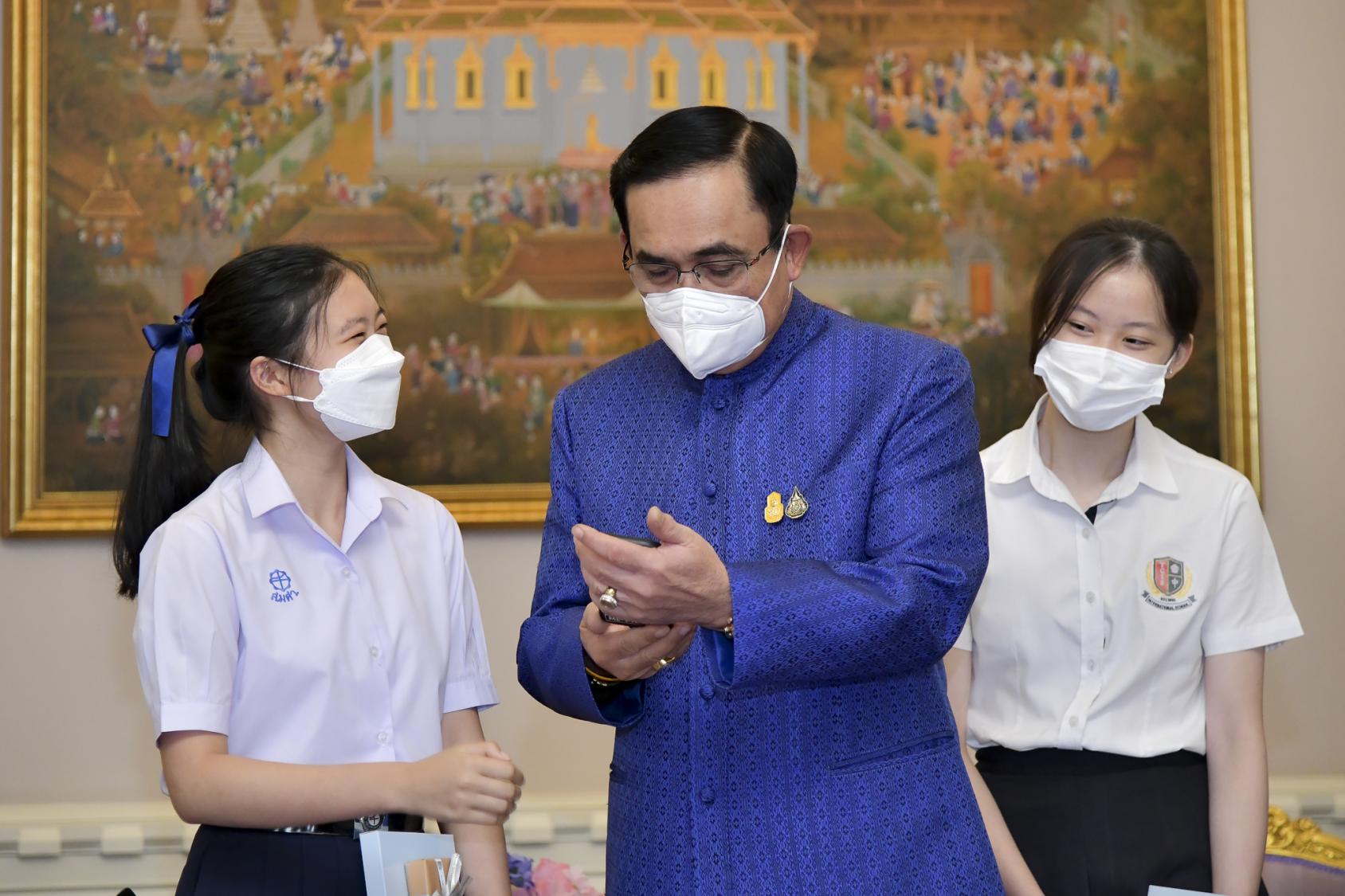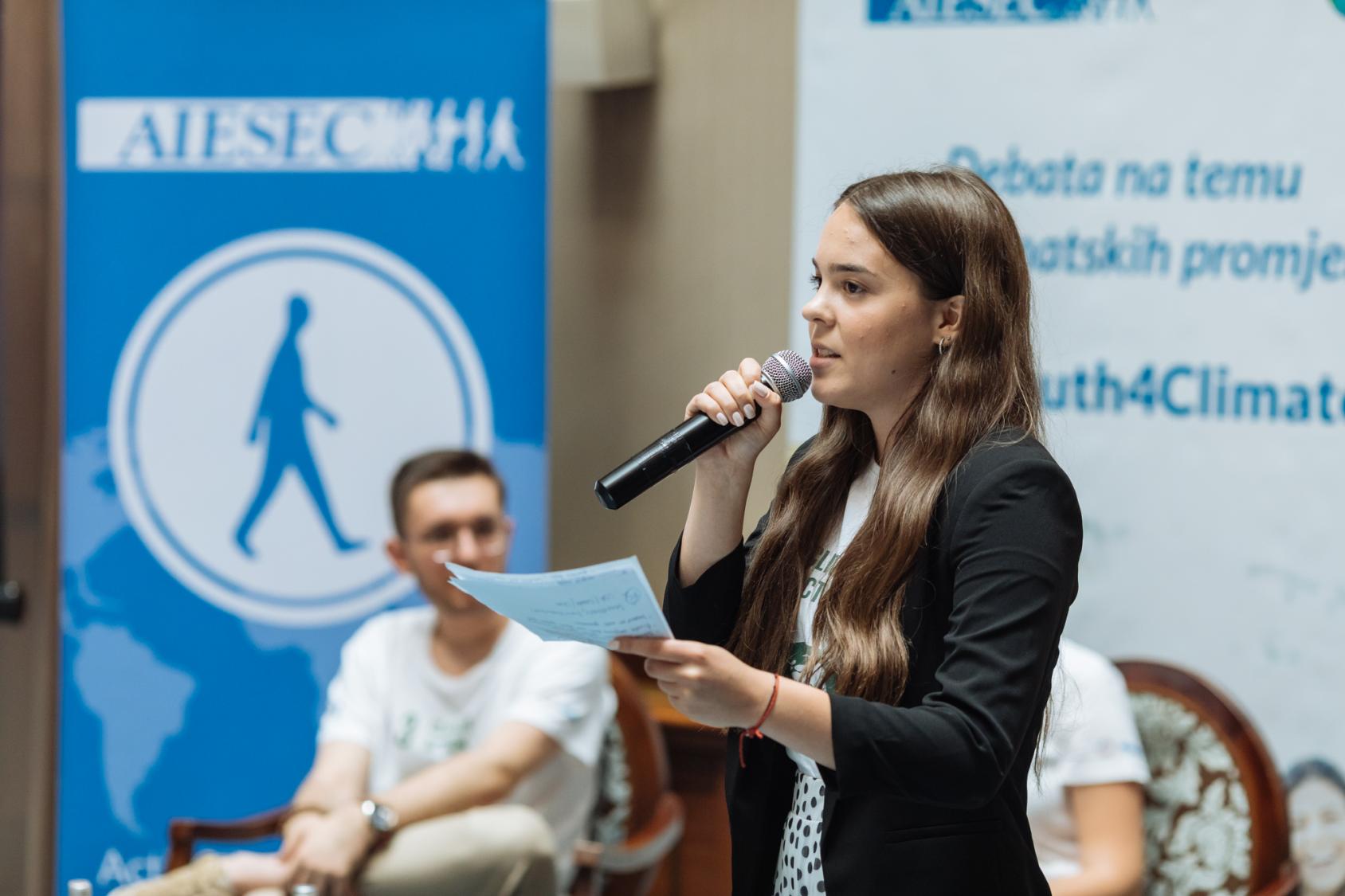Women and girls around the world are leading the fight against climate change

About fifteen years ago, Balgis Osman-Elasha, a lead author of the Fourth Assessment Report of the Intergovernmental Panel on Climate Change (IPCC), the UN body for assessing the science related to climate change, remarked: “Women are increasingly being seen as more vulnerable than men to the impacts of climate change, mainly because they represent the majority of the world's poor and are proportionally more dependent on threatened natural resources.”
The work to achieve gender equality is key to tackling the growing risks posed by climate change.
And there is growing evidence that women are the best advocates in the fight against climate change, answering the call of António Guterres when the UN Secretary-General raised the alarm on the importance of taking climate action as part of his priorities for 2022.
Around the world, women and girls are working as leaders and change-makers, mobilizing action for climate adaptation and mitigation. They are leading sustainability initiatives, and their participation is resulting in a coordinated approach to tackling climate action.
Today, on International Women’s Day, we pay tribute to the vision, hard work and subsequent achievements of women who are leading the fight against the scourge of climate change in their communities.
Through these five stories from the ground on the important roles women play in effective climate change responses, we draw inspiration from their dedication, courage and creativity as we strive towards achieving the Sustainable Development Goals.
Empowering women in Northern Tanzania to become agents of climate resilience and adaptation

Gladness Gilole, who dropped out of school and married when she was 15, would never have imagined that one day, she would own her own farm, manage her own business, and be able to provide for herself and her children.
Living in Sale, Ngorongoro, a small community in northern Tanzania, Gladness used to struggle to make ends meet in a harsh environment where rising temperatures and water scarcity severely threatened her livestock, her main source of income.
After her husband passed away, she lost everything.
Then, in 2020, the "Energize Project" — an initiative implemented by UN Women and the Pastoral Women’s Council (PWC) with support from the Korea International Cooperation Agency — trained her and 100 other women in entrepreneurship. Through the project, she also learned to install solar equipment, make environmentally-friendly bricks, and build sustainable bio-gas systems to reduce dependence on firewood for lighting and cooking.
Gladness used her new knowledge of brick-making to build her own home and was hired to build a health dispensary in her village.
Today, she is thriving.
“I moved back to Sale and now I own a farm, manage a tailoring business and I sell and install solar equipment,” she said.
Gladness has also become an agent of change working with other girls in her village, mentoring them and teaching them the adaptation skills she acquired.
“I want to help other young women see that there is hope for their future, and I want to play a role in making that hope a reality", she added.
Read Gladness’s full story as originally published on the UN Women website on 16 February 2022
Cuba: Advancing gender equality through climate-resilient agriculture
In Cuba, only 17.2% of the roughly 800,000 people employed in agricultural labour are women. To help bridge this gap, the UN has been implementing a number of projects to promote climate resilience in agriculture while strengthening gender equality.
Sandra Garlobo learned to optimize the output of her maize farm through these programmes. “Thanks to the training, we have increased our productivity, since we make better use of the land," she explains. Sandra also learned that she could run things as effectively as her husband and is proud to be the breadwinner of her household while her husband recovers from an illness.
From these UN-supported programmes, Sandra enthuses that "We gained access to technology that helped us increase our efficiency: a [machine to separate the grain] the maize, different implements, scales, special blankets to cover the maize and a humidity meter to check how dry it is".
Confronted with the impacts of water scarcity, another agricultural producer, Yusimí Leyva Paz, acquired the skills to increase drought resilience: "On the farm, we have built wells to gather rainwater, we irrigate the crops in the afternoon to save water and avoid its evaporation".
At the same time, Yusimí also explains that she has been empowered to share daily tasks equally with her husband, both and home but especially on the farm. "I feel like a very fulfilled woman because I always wanted to have a family like this,” she adds.
For her part, Elianys de la Caridad Pérez, a farm owner, has shared that while she wanted to get involved in increasing the output of her farm, she had to face the stereotype that agriculture was not a woman’s job. She turned to initiatives organized by the UN team to learn about resistant seeds, soil management, grain varieties, and other adaptation strategies to increase production while preserving the environment.
But she also learned about the importance of gender equality and the role of women in tackling climate change.
"We can talk about gender equity and equal rights with men. I stand next to them and tell them: ‘You have your economy, and you produce, and so do we’", she enthuses.
Learn more about the efforts of the United Nations in Cuba on Cuba.UN.org.
Young Moroccan women are leading the way in climate action

"It is young people who can tip the balance to the right side in the fight against climate change," reminded Manal Bidar, a young activist from the city of Agadir, Morocco, who is committed to climate action.
Now 18 years old, Manal got involved in her first action to preserve the environment and mitigate the impact of climate change when she was just 13. "My friends from a local club and I cleaned a beach.”
Since then, she has focused on youth mobilization for climate action and participation in global climate negotiations.
She is an ambassador for the African Youth Climate Hub, a platform that brings together young African activists committed to fighting climate change and serves as an advisor to the Global Center on Adaptation (GCA), an international non-profit that works on accelerating, innovating and scaling adaptation solutions to promote climate-resilience around the world.
Like Manal, Hasnae Bakhchouch, a 22-year-old student from Rabat, Morocco’s capital, is also taking action to tackle the impact of climate change on our planet and people. She warns that, "With its adverse effects on biodiversity and the health of living beings, climate change jeopardizes societies and can cause conflicts over access to natural resources."
Hasnae was a National Coordinator of the Moroccan youth delegation to the UN Conference of Youth on Climate, held in September 2021 in Milan, Italy.
"The aim [of the Conference] was to include young people in the fight against climate change by helping them draft recommendations for COP 26 [the 26th UN Climate Change conference]," which was held in Glasgow, Scotland in 2021, she explained.
Read the full story on UNSDG website here.
Girl climate leaders are leading the climate action charge in Thailand

Every day, inspiring and resilient women are at the forefront of protecting our planet.
Among them are Aminta Permpoonwiwat and Phatteeya Yongsanguanchai, both 16-years-old and Thailand’s #Youth4Climate delegates to the UN Conference of Youth on Climate in Milan.
Aminta and Phatteeya were selected from over 8,000 youth globally to take part in the climate policymaking process.
They have a special mission this International Women’s Day and that is to continue to advance gender equality in climate action alongside the winners of the 2022 #AmbassadorForADay competition, hosted by the United Nations in Thailand.
“A girl has limitless possibilities if you give her a chance to grow and strive,” says Phatteeya.
Similarly, Aminta started a youth mentorship project to teach underprivileged students about sustainability.
She explains that “By empowering all children and eliminating gender and other socio-economic disparities, I hope they become key drivers of climate resilience. Climate change is everyone's responsibility.”
Looking back to Milan, Aminta says, “I am grateful for everything, but my mission isn’t accomplished yet. As climate change rages on, so too does my journey.”
Learn more about UN Thailand’s #AmbassadorForADay Initiative.
Bosnia and Herzegovina: young women leading by example

For the vast majority of young people in Bosnia and Herzegovina – 72% of those under 18 – climate change is an emergency, highlighting the need to hear their aspirations and to support their roles as positive agents of change on climate action.
“Even though we, the youth, are not directly responsible for climate change we are the ones to feel it on our skin,”
says Anastasija, a 19-year-old climate activist who was set to represent Bosnia and Herzegovina at COP 26, the UN climate conference in Glasgow.
Raised in an eco-conscious family, and with an awareness of how nature is suffering from human impact, she keeps this knowledge alive and tries to pass it on to young people around her. For example, for Anastasija, reading the ingredients and nutrition labels to see whether her food is sustainably produced is not a trivial matter. She takes as much time as needed to be sure.
“I noticed how more and more people were paying attention to what they eat,” continued Anastasija, “we should not scare each other, but we should become aware of the problem and start working on solving it.”
Emina, another young climate advocate from Bosnia and Herzegovina, completely agrees. In fact, she decided to change her diet after learning about the negative effects of meat production and other segments of the food industry on nature.
“I believe there should be more awareness, because a lot of people don’t understand the processes that are happening,” she explained.
Emina recently participated in the Climate Change Academy, a UNDP-implemented, Green Climate Fund-financed project. This engagement further strengthened her resolve to play her part in informing people about the impact of climate change and taking climate action to address it. “First, we need education – and then a change of habits,” she said.
8 March is International Women's Day. The theme for 2022 is "gender equality today for a sustainable tomorrow" and calls for climate action for women, by women.
Compiled and edited by the communications and results reporting team at the UN Development Coordination Office in New York, with much appreciation to the contribution from colleagues around the world, including our UN country teams in Cuba, Morocco, Thailand, and Bosnia and Herzegovina, as well as our colleagues at UN Women in Tanzania. All the materials that inspired this article were originally published on their respective websites.
To learn more about the results of our work in this area and other initiatives to accelerate progress towards the Sustainable Development Goals, please read the dedicated section of the UNSDG Chair Report on DCO.













